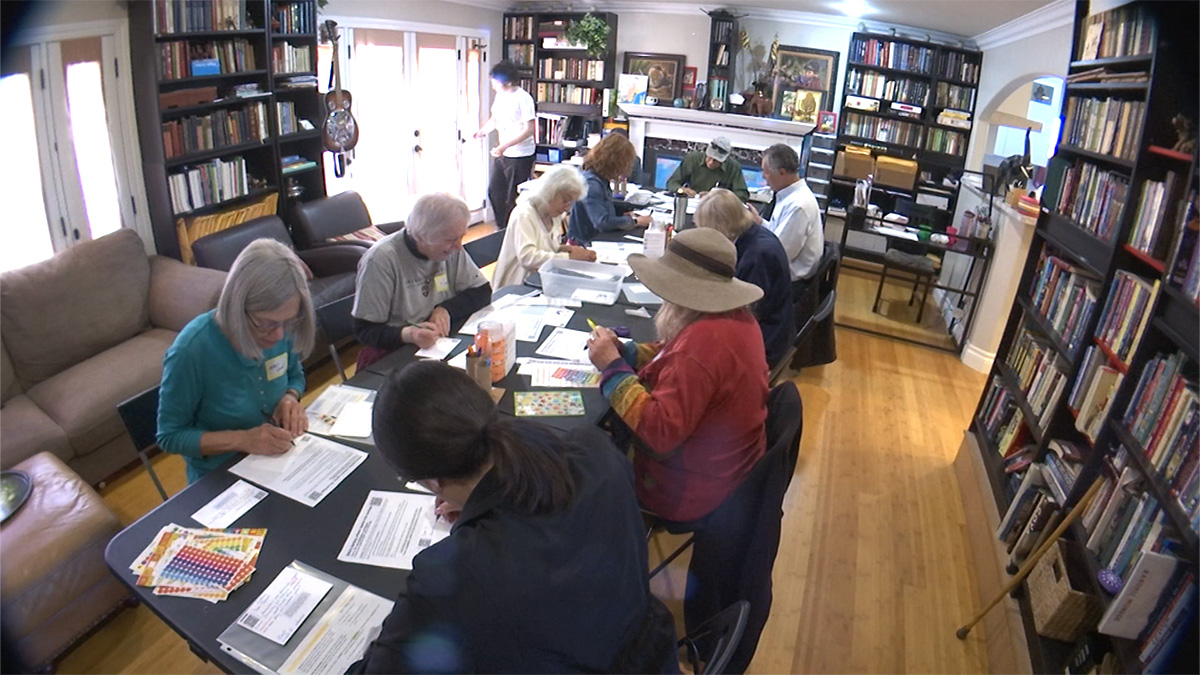In April of 1967, the Rev. Dr. Martin Luther King, Jr. gave a fervent anti-war speech, departing from his message of civil rights and railing against the Vietnam War.
Fifty years later, on Tax Day 2017, peace activists repeated his words outside the Ron Dellums Federal Building to protest against President Donald Trump's promise to increase military spending.
The 1967 speech Dr. King made at Riverside Church in New York City challenged the establishment by condeming the war in Vietnam. He said the war sent American men from poor neighborhoods across the ocean to kill Vietnamese families from poor villages.
"The speech is remarkably prescient. If you change the names of the countries, the analysis addresses the same problems and issues we're dealing with today," said Jackie Cabasso, Executive Director of the Western States Legal Foundation, a nuclear disarmament advocacy organization based in Oakland.
While many Americans can recite key poetic phrases from King's "I Have a Dream" speech, or his "Mountaintop" speech, few know "Beyond Vietnam."
"As I have walked among the desperate, rejected and angry young men I have told them that Molotov cocktails and rifles would not solve their problems," King preached in 1967. "I have tried to offer them my deepest compassion while maintaining my conviction that social change comes most meaningfully through nonviolent action. But they asked - and rightly so - what about Vietnam?"
It was King's most controversial speech. Many who were upset by it were part of the Civil Rights Movement because they felt abandoned by their leader.
Local
"War is not the answer. Communism will never be defeated by the use of atomic bombs or nuclear weapons," King said 50 years ago.
Wilson Riles saw King speak to similar anti-war themes at Stanford a month before the famous speech in Manhattan. He remembered being thrilled to hear one of his heroes draw a connection between fighting for civil rights and the anti-war movement.
"We were particularly moved when he said that the bombs in Vietnam were dropping in the ghettos of this country because the funds were being shifted out of the anti-poverty programs and into the war," Riles said.
Riles, who served on the Oakland City Council from 1979-1992, had the privilege of driving Dr. King from his hotel to the Stanford campus and remembered the civil rights leader asking him questions about campus politics and black students at Stanford.



